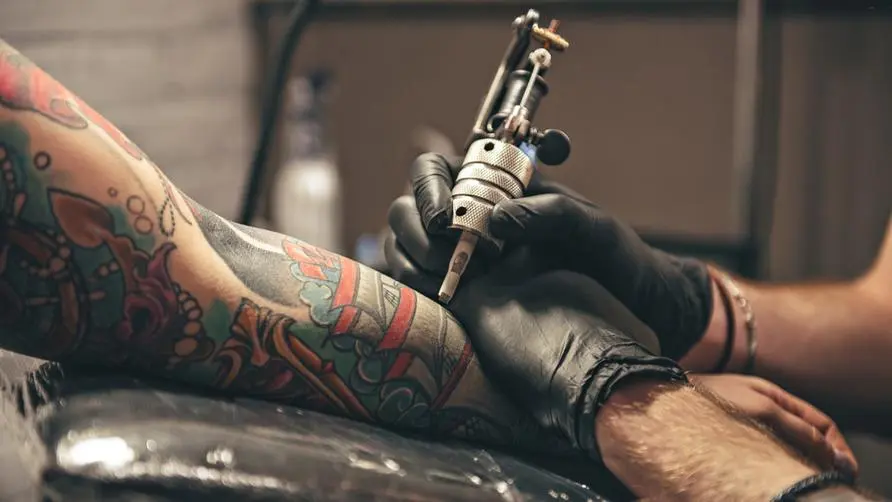Research: More than 50% of people with tattoos were abused in childhood! Can tattoos help heal trauma? Psychologist reveals "4 functions"

Tattoos or tattoos have gradually become widely accepted by the public in recent years, and many young people use tattoos as one of the forms of expressing personal or social culture. However, when psychologists deeply studied the psychological state of tattooers, they found that tattooing is not only a desire to express themselves, but may also be related to the tattooer’s past psychological trauma? A study published in BMC Psychology found that people who were abused or neglected as children were more likely to get tattoos or piercings as adults.
Tattoos related to “psychological trauma”? Study reveals: Nearly 50% of people with tattoos were abused in childhood
A research team from the University of Magdeburg in Germany collected research data from 2,510 families, and adolescents or adults aged 14-44 were randomly interviewed. In the end, a total of 1,060 subjects participated in the study, with an average age of about 30 years old. Participants answered questions about tattoos and piercings and completed a questionnaire about childhood trauma.
Data comparison showed that about 40% of the subjects had at least one tattoo or piercing on their bodies, and 25% of the subjects believed that they had suffered severe abuse or neglect in childhood. 48% of those who were abused had tattoos or piercings, compared with 35% of those who had not been abused. Different types and severity of abuse are associated with tattoos and piercings, and the more severe the abuse, the more tattoos or piercings the subject has.
“The act of tattooing or piercing allows victims of abuse to face adversity and become an autonomous expression.” Study author Mareike Ernst believes that from a psychological perspective, tattoos and piercings can be regarded as a “therapeutic dialogue.” , symbolizing reconciliation with the past self. He said that many subjects during the interview believed that tattoos indeed provided them with the motivation to say goodbye to the haze of the past, and provided an outlet for loneliness and negative emotions.
Can tattoos help heal wounds and heal yourself? Aesthetic psychologist reveals the “4 major functions”
Suzanne B. Phillips, a Ph.D. in clinical psychology from the United States, also expressed her views on the above-mentioned research. She said that there are indeed many patients with mental illness in the clinic who use tattoos to record traumatic events in their lives or commemorate their deceased relatives or friends. Phillips further noted that this trend has become even more pronounced during the COVID-19 pandemic.
Phillips believes that the effect of tattoos on the spiritual level includes the following four points:
Remembering/mourning the past. Phillips said grieving the past could be about commemorating a loved one who has passed away, or a specific event. For example, survivors of the 9/11 terrorist attacks tattooed their near-death experiences on their left arms as a memorial. It can be regarded as a process of self-healing and facing the facts. Tattooists use the body as a canvas to record the impact on the body, mind and self-awareness, and become a symbol to soothe the inner trauma.
Redefine yourself. Phillips believes that the significance of tattoos is not limited to the final creation, but also represents the “process of body transformation.” For example, women with breast cancer who have undergone mastectomy use tattoos to commemorate the transformation of their bodies and awaken their self-awareness.
Eliminate hidden shame. The visibility of tattoos is associated with erasing the stigma associated with trauma, war, and victimization. Phillips said that a 24-year-old sexual assault victim once said that the tattoo symbolized no longer being ashamed of the past experience; on the contrary, when she decided to show the tattoo in front of the public, the shame and shame in her heart also disappeared. It dissipates.
Promote human connections. Phillips pointed out that many young parents choose to have their children’s names or symbols tattooed on their bodies after their children are born. She believes that tattoos can connect family and friends. The fact that tattoos are not easily erased also means that they are not bound by time. The tattooer can evoke this connection through the pattern at any time.
“Tattoos may serve as an emotional outlet for victims of abuse. Therefore, it should not be stigmatized as a second-rate, unfashionable art form. On the contrary, tattoo art can benefit the physical and mental state of people with mental illness, through It is not easy for tattoos to face their past bravely and is worthy of respect,” said Phillips.
Source:
Further reading:





